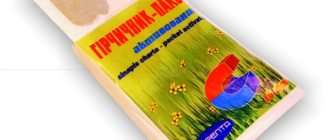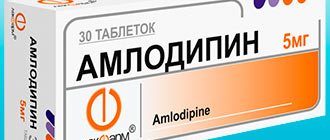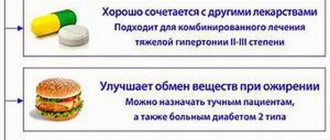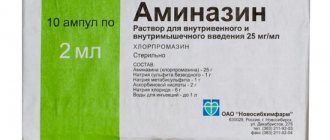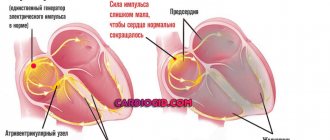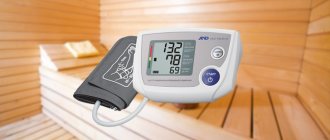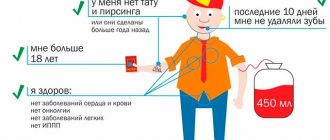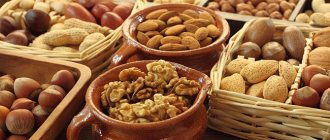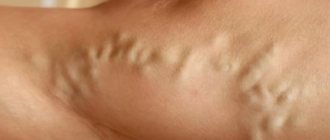High blood pressure is a common disorder of the cardiovascular system, for the treatment of which traditional medicine offers several groups of drugs. Hirudotherapy for hypertension is a safe and effective alternative to pills and injections, created by nature. When is treatment with leeches indicated, how and in what quantity are procedures performed and how effective are they?
Hirudotherapy: history and modernity
The use of medicinal leeches for various diseases began long before our era. This method of getting rid of “bad blood” is mentioned in medical collections of Ancient Egypt, Greece, and India. The principles of hirudotherapy are described in more detail by famous ancient healers Hippocrates and Avicenna. Leeching was widely practiced until the mid-19th century as an effective and gentle method of bloodletting.
The technique lost popularity for several decades, but at the end of the same century, the study of the mechanisms of its action began. Studies have shown that the enzyme hirudin contained in the saliva of worms is a powerful anticoagulant that prevents blood clotting. Since then, hirudotherapy has been used on a scientific basis.
For medical procedures, only specially grown leeches can be used. Individuals living in the wild pose a danger because they are carriers of infections.
Medical leech
Medical rationale
The bloodletting method, used since ancient times, has a common basis with the use of leeches. The goal of this approach is to eliminate excess blood from the body.
The rationale is as follows:
- The pressure decreases due to a direct decrease in the amount of blood itself (bloodletting, which lowers the pressure by mechanical action).
- Oxygen saturation.
- The location of worms on reflex points that are associated with certain systems and organs.
- Introduction into the bloodstream of active substances that are released by leeches when attached to the body.
- Increased blood flow.
It is important to note the difference between simple bloodletting and the use of leeches, which belong to the subclass of annelids. The leech not only causes capillary bleeding, it also releases certain substances that enter the patient's bloodstream.
Beneficial substances secreted by the leech include:
- hirudin (reduces blood clotting, prevents thrombosis);
- organelase, which enhances the regenerative abilities of blood vessels and the heart itself;
- destabilase (destroys blood clots);
- apyrase, which destroys cholesterol plaques.
The effectiveness of the method is confirmed by scientific studies involving control groups of patients. Thus, according to studies conducted by the Novosibirsk Academy, improvement was noted in 75% of patients suffering from hypertension.
Indications for treatment
Hypertension or arterial hypertension is a persistent chronic increase in blood pressure (over 140/0 mm Hg). The disease manifests itself with the following symptoms:
- frequent headaches;
- swelling of soft tissues;
- attacks of dizziness;
- burst capillaries on the skin, eyeballs;
- spontaneous sensation of heat, rush of blood to the head;
- shortness of breath, lack of air;
- “floaters” before the eyes, blurred vision and loss of consciousness;
- increased excitability.
This condition is fraught with serious consequences: cerebral hemorrhages, heart attack, kidney and heart failure, and blurred vision. Hypertension has three degrees of severity and is prone to progression without treatment.
How does hirudotherapy help with hypertension?
The secret to the effectiveness of treating hypertension with leeches is to eliminate the cause of the disease and have a complex effect on the body. Blood pressure increases due to:
- obesity and poor nutrition;
- atherosclerosis – blockage of blood vessels with cholesterol deposits;
- heart and blood diseases;
- unfavorable heredity;
- tobacco and alcohol abuse;
- malfunctions of the endocrine glands and kidneys;
- stress, depression, nervous exhaustion.
As a result of exposure to one or more of these factors, blood flow is disrupted, blood clotting increases, blood vessels lose elasticity and become fragile, clogged with blood clots and cholesterol plaques.
The therapeutic effect of hirudotherapy for hypertension is achieved through a combination of the biological activity of the worms' saliva, blood loss and the body's response to the procedure. Each leech sucks from 5 to 15 ml of blood per session, after which the bleeding lasts for several hours. A decrease in the volume of circulating blood helps reduce blood pressure, and the bite and blood loss stimulate the immune system and activate hematopoiesis.
The main therapeutic effect is exerted by leech saliva, which enters the patient’s body during a bite. Its biochemical composition has not been fully studied, but the main active ingredients are known. The salivary glands of annelids produce about 100 different enzymes; the table describes the most useful and effective for hypertension.
| Name | Mechanism of action |
| Hirudin | Once in the bloodstream, it forms an inactive complex with thrombin, a blood factor responsible for blood clotting. It has an anticoagulant effect, preventing platelet aggregation. |
| Apyrase | Increases the activity of cholesterol-digesting enzymes. Plays a major role in the treatment of hypertension caused by atherosclerosis. |
| Orgelase | It acts directly on blood vessels, smoothing and strengthening their inner walls. It also promotes the expansion of the capillary network due to the formation of new capillaries. As a result, blood flow is activated and tissue nutrition is improved. |
| Destabilase | A complex enzyme whose components thin the blood and also dissolve existing blood clots. |
| Hyaluronidase | Enhances the effectiveness of hirudin, increasing tissue permeability and accelerating its distribution in the body. |
| Eglins | A group of protein compounds that reduce inflammation that accompanies vascular disease. |
| Histamine-like substance | Provides increased blood flow to the bite site due to a local inflammatory reaction. It has an antispasmodic effect - dilates blood vessels and lowers blood pressure. |
Chemical formula of the hirudin molecule
Stages of the disease
About a quarter of the population, according to WHO, is susceptible to hypertension. This is a condition in which the blood pressure is between 160 and 95 or higher.
The exact causes of primary hypertension have not been established. Treatment of this pathology is aimed directly at reducing blood pressure.
The contributing factors are considered to be:
- hereditary predisposition;
- elderly age;
- presence of bad habits;
- unbalanced diet with a predominance of fatty foods;
- psycho-emotional stress;
- work in hazardous industries.
Secondary hypertension is a consequence of disruption of the endocrine system, heart or liver. Treatment of this type of hypertension is, first of all, the normalization of the body systems that contribute to a long-term increase in pressure.
There is a gradation of the disease according to stages:
- The initial stage is characterized by an increase in pressure during stressful situations and psychological stress. After some time, the indicators return to normal.
- At the second stage of the disease, the situation worsens: blood pressure increases more often, and medications are required to reduce it. The left ventricle of the heart increases in size.
- Blood pressure in the third stage is already constantly above normal. Serious complications are possible, for example, heart and kidney failure, myocardial infarction. In this condition, hirudotherapy for hypertension can only be used as an additional remedy; it cannot completely replace medications.
How is the treatment carried out?
A negative attitude towards hirudotherapy for hypertension and other diseases is due to the fear of pain, bleeding and the unpleasant appearance of leeches. A detailed familiarization with the procedure will help you cope with anxiety and mistrust.
The safety of treatment is guaranteed only in a medical facility, with a specialist. Doctors at the Paramita clinic have the appropriate qualifications and experience in the practical application of the technique.
Preparation
No earlier than a week before the start of the course, it is necessary to do a blood test - this will eliminate contraindications such as anemia and thrombocytopenia. Leeches are very sensitive to odors, so before the procedure you should wash thoroughly using fragrance-free detergents. You cannot use cosmetics or perfumes. For the same reason, it is advisable not to drink alcohol or smoke for several days.
Process
At the initial consultation, the doctor determines the severity of hypertension and the general condition of the patient. According to the data obtained, an individual course of therapy is prescribed: the number and duration of sessions, the number of leeches per procedure and the points at which they are placed. Important points:
- The pain during the bite is insignificant (according to reviews, comparable to a mosquito bite), lasts a few seconds at the stage of suction to the skin. There is no further pain.
- Leeches are placed on active points. The standard scheme includes areas behind the ears, on the tailbone and sacrum, on the shoulders, and also on the neck in the area of the 7th vertebra.
- When placing acupuncture points, the doctor’s main task is to avoid the area where large vessels are located. At the same time, the worms independently, due to their special “sense,” accurately determine the right place and stick to exactly where they should.
- The duration of the session is determined individually. The leech itself falls off after saturation (after 30-40 minutes); if necessary, it is painlessly detached earlier.
- A pad is placed on the wound that absorbs the liquid well. There is no need to disinfect the bite site - the worm's saliva contains bactericidal substances.
There is no need to be afraid of infection from infected or previously used leeches. They are kept in the clinic under sterile conditions, placed only once, and immediately disposed of after the procedure.
Points for placing leeches for hypertension
After the procedure
Blood and lymph will ooze from the wound for several hours - this is normal (the pad should be changed as needed). After a couple of days, the bite area will begin to heal, so it may become itchy. After healing, there are no scars left.
How to place a leech correctly
Animals are sucked in at points determined by instinct. In hirudotherapy, it is required that it bites a person with hypertension in a certain place. Do it:
- prepare the leech for work (remove the vessel from the refrigerator 5-6 hours before the procedure);
- wipe areas on the skin with alcohol (for disinfection);
- take the worm with sterile tweezers and place it in a vessel with a narrow neck (test tube, glass, jar)
- Press the container with the animal to the point of the bite, hold until sucking;
- remove the container.
The worm becomes saturated in 40-60 minutes. Then it is removed. To remove the worm in advance, you should bring a cotton swab with iodine to it.
The skin incision site will bleed after the worm is removed. Treat with hydrogen peroxide and apply a sterile bandage with a plaster.
The result of treating hypertension with leeches
The main advantage of treating hypertension with leeches over drug therapy is the rapid positive effect:
- after the first procedure,
headaches and dizziness disappear, patients note a general improvement in well-being and mood; - after 3-4,
blood pressure drops to normal levels, swelling goes away, the feeling of lack of oxygen and shortness of breath disappear; - after completion of therapy
, blood pressure is completely stabilized, all symptoms of hypertension disappear, and in overweight patients, body weight decreases.
The duration of treatment and the number of sessions are determined individually. For pathology of moderate severity, 6-8 procedures with an interval of several days are sufficient, but in severe cases at least 10-12 are required. The recovery period between courses is from 2 months.
Contraindications
Hirudotherapy is safer than taking special antihypertensive drugs. It does not give side effects and is indispensable in case of allergies to pills and injections, but there are contraindications to the treatment of hypertension with leeches:
- intolerance to hirudin and other components of saliva;
- pregnancy (there is a possibility of bleeding and miscarriage);
- anemia and thrombocytopenia (deficiency of hemoglobin and platelets);
- malignant tumors of any location;
- decreased blood clotting, hemophilia;
- low blood pressure (hypotension).
At the clinic, before starting a course of hirudotherapy, tests are done and the patient’s medical history is studied to identify contraindications. Therefore, treating hypertension with leeches on your own, at home, is dangerous and unacceptable.
Indications and contraindications for the procedure
Hirudotherapy is allowed if necessary to quickly relieve pain and discomfort, strengthen the immune system and briefly increase the overall tone of the body. The procedure is practically painless and does not require special preparation. However, there are a number of diagnoses for which it is prohibited to conduct a leech course. Among them:
- pregnancy and breastfeeding period. Components of saliva enter the wound and can cause an unpredictable reaction in the fetus or infant;
- with extremely low red blood cell counts (severe forms of anemia);
- if the patient has hemophilia, he is prohibited from any form of bloodletting;
- activities cannot be carried out on children and adolescents; the described manipulations are designed exclusively for adult organisms;
- a complete ban on treatment with hiruda for people with heart defects clearly showing tetralogy of Fallot;
- for cancer and intensive chemotherapy.
The issue of treating blood pressure with leeches while simultaneously taking medication courses is open and requires fundamental consultations with the attending physician. Some drugs have a cumulative effect, and therefore artificial blood sampling at this time is undesirable.
How to enhance the effectiveness of hirudotherapy for hypertension
An integrated approach will help make treatment of hypertension with leeches more effective and speed up recovery. The Paramita clinic successfully uses a combination of Eastern and Western methods of treating hypertension without medications:
- acupressure – normalizes the functioning of the heart and blood vessels;
- acupuncture – relieves pain, relieves inflammation;
- vacuum therapy – improves tissue nutrition and rejuvenates them;
- herbal medicine – eliminates the symptoms of the disease with herbal preparations.
During the consultation, the attending physician gives additional advice on nutrition and physical activity. A diet is prescribed with limited consumption of fats, salt, and quickly digestible carbohydrates. A set of effective and safe physical exercises is selected taking into account the individual health characteristics of the patient and the stage of hypertension.
Themes
Treatment without drugs, Treatment methods Date of publication: 11/17/2019 Date of update: 11/17/2019
Reader rating
Rating: 4 / 5 (2)
A course of treatment
Typically, treatment with leeches is aimed at a duration of up to 10 sessions, between which there is a gap determined by the doctor. In the presence of certain diseases concomitant with hypertension, the duration of the course can be increased or supplemented with other active points. After the full course, before the next one, a break of up to four months is recommended.
Number of annelid installation sessions:
| Installation area | Recommended number of sessions |
| Behind the ears | 3 |
| Michaelis rhombus | 2 |
| Coccyx | 3 |
The use of leeches is quite justified in the treatment of hypertension. It provides relief, eliminates complications and is relatively inexpensive. When choosing this method, you need to carefully select a medical institution and a qualified specialist who will take into account all the patient’s characteristics and study the medical history.
